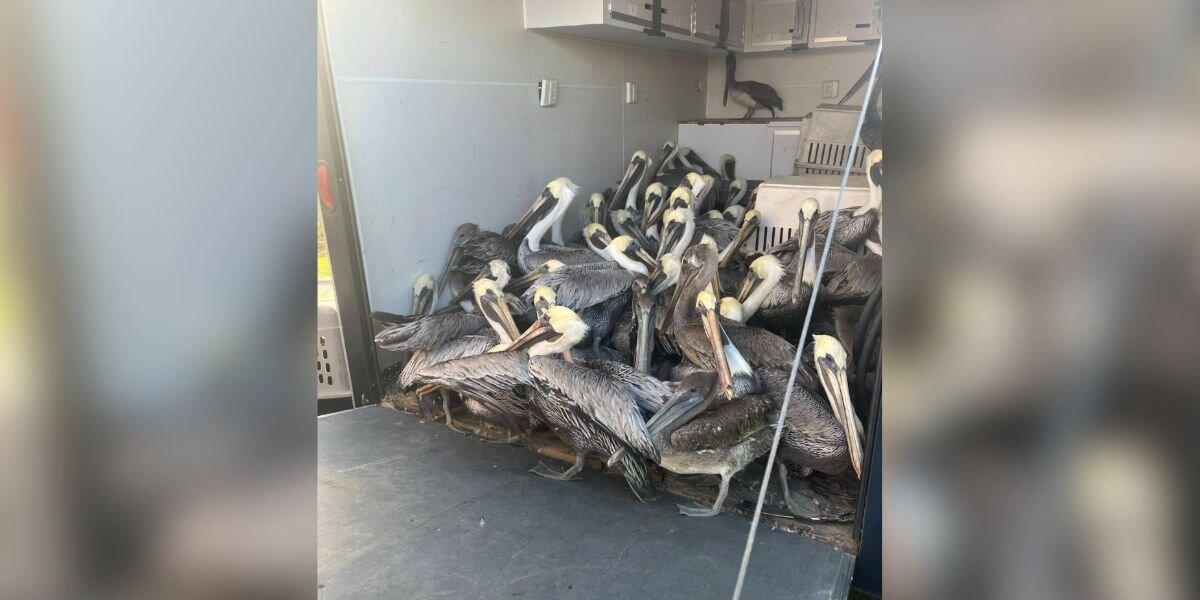On Shamrock Island, a small patch of land off the Texas Gulf Coast, 19 waterbird species live peacefully on The Nature Conservancy’s 110-acre protected preserve. But recently, the island’s tranquility was disturbed when the area was hit with a devastating hail storm, impacting hundreds of vulnerable birds.
 Amos Rehabilitation Keep
Amos Rehabilitation Keep
Animal advocates on the mainland knew they had to help. Rescuers from Amos Rehabilitation Keep (ARK), a rehab and conservation group at the University of Texas at Austin’s Marine Science Institute, traveled to the southern end of the island, where they soon discovered the magnitude of the situation.
 Amos Rehabilitation Keep
Amos Rehabilitation Keep
“Some birds had fairly severe head trauma, some were very weak and lethargic, and many had severely fractured wings,” ARK staff supervisor Andrew Orgill told The Dodo.
 Amos Rehabilitation Keep
Amos Rehabilitation Keep
Aided by several partners, including the Texas Parks & Wildlife Department, the Coastal Bend Bays and Estuaries Program, the Harte Research Institute and the Texas State Aquarium, rescuers transported about 390 birds off of the island and into the ARK rehab facility, where team members could examine them.
“We started with the most injured and most critical and then worked our way through the rest,” Orgill said.
 Amos Rehabilitation Keep
Amos Rehabilitation Keep
Today, 120 birds are still at ARK. Others have moved to the Gulf Coast Wildlife Rehabilitation facility and the Wings Rescue Center. Some birds only have minor bruising, while others suffer from more intense fractures that could take up to five weeks to heal. Regardless, rescuers are not giving up, and they’re keeping their hopes high.
“[W]e are optimistic that many of them will make a full recovery!” Orgill said.
 Amos Rehabilitation Keep
Amos Rehabilitation Keep
The vast majority of the rescued animals were eastern brown pelicans, large birds known for their long bills and silvery gray feathers. According to Orgill, these birds were only taken off of the endangered species list in the last 20 years, and while their population is recovering, weather events like this can have considerably negative impacts on their continued health. That’s why rescuers are working so hard to ensure these animals have everything they need to recover and, eventually, thrive.
“Getting every bird possible back into the wild will be incredibly important!” Orgill said.
 Grateful Pelican Won’t Stop Visiting The Guy Who Saved His Life“He sometimes follows us around and even tries to communicate with us” 😍💞
Grateful Pelican Won’t Stop Visiting The Guy Who Saved His Life“He sometimes follows us around and even tries to communicate with us” 😍💞

